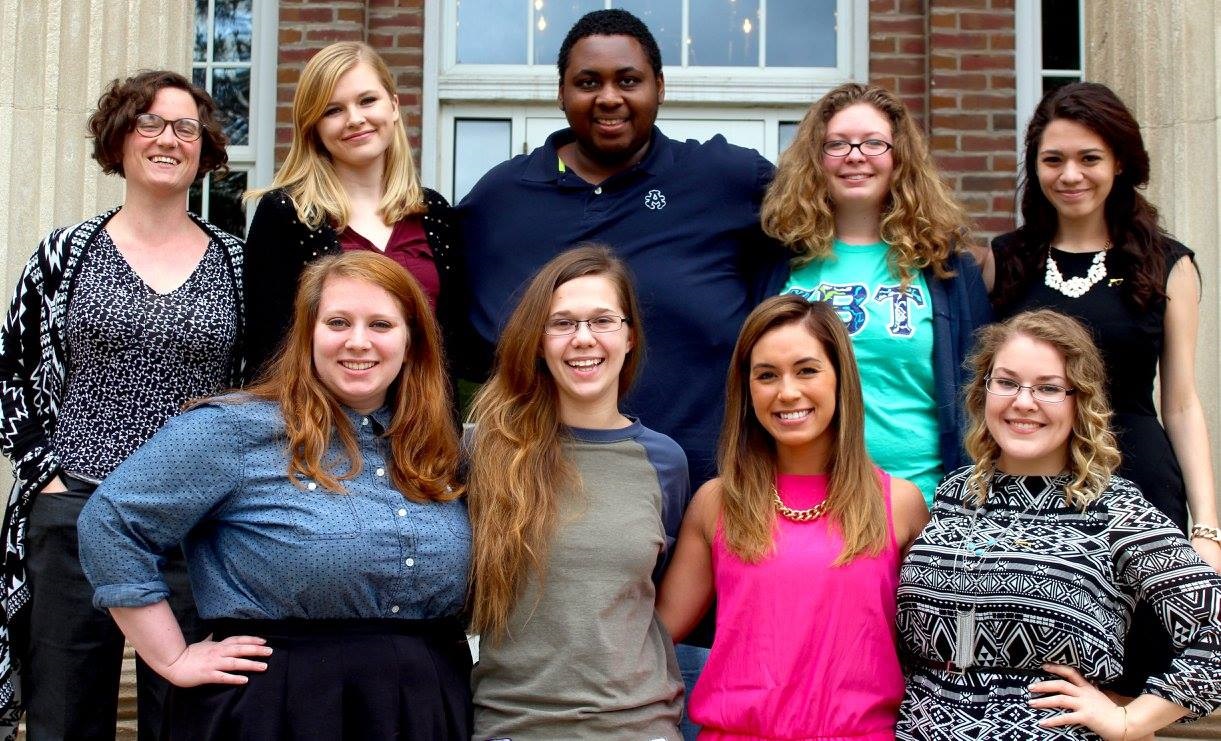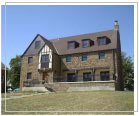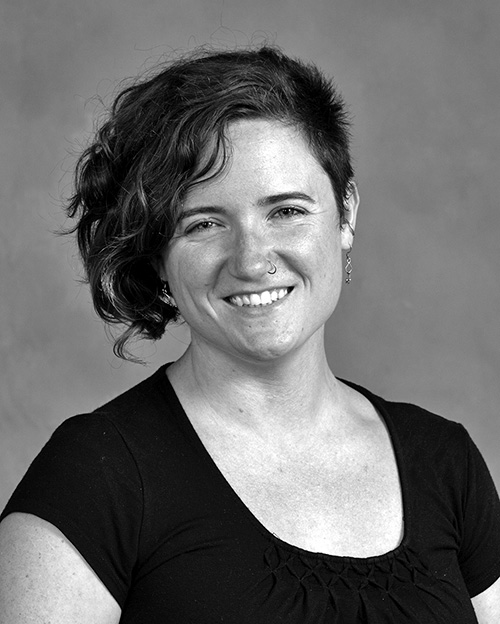|
Welcome
|
The Department
of English Proudly Presents
the Class of 2016

|
|
Overview
The study of English at Monmouth College celebrates
the discipline and joys of close
reading, critical thinking and good writing, as experienced by majors and non-majors alike in a variety of
settings. Heavily
invested in the college’s distinctive “General Education Program,”
our faculty teach interdisciplinary courses (Freshman Seminar, Issues and
Ideas, Women’s Studies, Honors Program) because we see reading, thinking
and writing as essential and integral to the liberal arts. On the other hand, we have structured departmental study (for the
major, minor or concentration) to offer students the possibility of
emphasizing one or more of three areas: a) literary study; b) creative and
professional writing; or c) teacher certification training.
Literary Study
- Our love of literature underwrites
everything we do, including our often animated discussions about
different approaches to literature. What we share first is a sense of
purpose well described by Denis Donahue: "the purpose of reading
literature is to exercise or incite one’s imagination: specifically
one’s ability to imagine being different..." (The Practice of Reading
56). Imagination underwrites our commitment to understanding and
appreciating works of literature: their principles and praxis, their
many voices, their identities and types, their languages of experience
and their beauties.
- We offer core survey courses in
English and American literature (often elected by non-majors but
required of majors) in order both to read history and better interpret
literary works.
- We offer at least
one course in Shakespeare’s plays
and poetry annually, require it of majors and
minors, and encourage bardolotry
generally.
- Our “Genre Studies” and “Topics”
courses gather a wide variety of course titles: “Russian literature,”
“African Literature in Translation,” “African American Autobiography and
Fiction,” The Literature of Feminism,” with emphasis on modern and
contemporary works and different theoretical approaches.
- Author studies (“Chaucer,” “Murdock and
Woolf,” “Yeats
and Eliot,” “Hawthorne and Melville,” “Henry James,”
“William Faulkner,” etc.) give us the chance to read the author
and the “oeuvre” –an experience in reading too little enjoyed
and valued in our times.
Creative and Professional Writing
Of course, we write all the time: journals, course
portfolios, analytical essays, précis, research papers. Every major, for instance, is asked to undertake
a gateway course, "Introduction to
English Studies," which introduces both the history of the discipline
and the various reading and writing skills necessary to being a
successful English major. After four years, our students take a
"Senior Seminar" which is the culmination
of course work in critical
thinking, close reading, research and writing.
-
We offer introductory and advanced Creative
Writing courses in Fiction and Poetry, and encourage students to write
for or edit our literary magazine Coil. Our “Advanced Composition” course concentrates on literary
nonfiction and the personal essay. “Print Media” workshop courses link writing and reporting
to the campus newspaper, The Courier, and to internships our
students have enjoyed with
papers in the area. Students
are also encouraged to cultivate independent studies in creative
writing or take up script, play or media writing in the Communications
and Theater Arts Department.
Teaching Certification
-
With a large Education Department on
campus serving elementary and secondary teacher training, the English
department offers courses in “History of the Language,” “Grammar,” and
“Teaching Methods.”
Atmosphere
Our department is small, well integrated,
cooperative. We know our
students and talk about their academic lives. We do a good job of keeping track of their progress, through
advising and portfolio management of their accomplishments. Survey classes are set at around 25, but most other courses are
small, averaging between 10-16 students. As a college, Monmouth is foremost a teaching institution, and the
English Department is foremost among departments that define themselves in
time-intensive relationships with student learning.
The Mellinger Learning Center is home of the
English department: a beautifully renovated fraternity house, computer
classroom, and 24-hour computer center. Another computerized room in the building is dedicated to
tutoring, and therein English department-trained writing assistants
are paid to tutor fellow students in writing strategies. The Center and the “Writing Fellows-Writing Assistant
Program” provide prospective teachers with valuable skills and
experience in writing instruction.
What do our majors do with our degree?
It would seem, almost anything they want to. We have recent graduates in Masters and Doctoral programs in
English, Public Policy, Communications
Theory, History, Business Administration, Social Work and Sports
Administration. Law school,
high school teaching and Public Relations work have been the most frequent
reports from alumni, but more recently we hear from those who are software
specialists, private and civic event planners, trade writers, and Web
designers. If you can read,
think critically, write well and speak well, the possibilities are many. |
 |
|
What's New |
|
The Department of English
is pleased to welcome Professor Kasia
Bartoszynska, who is teaching 19th century
literature and British Literature II!

|
|
|
Publications |
|
|
|

